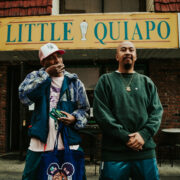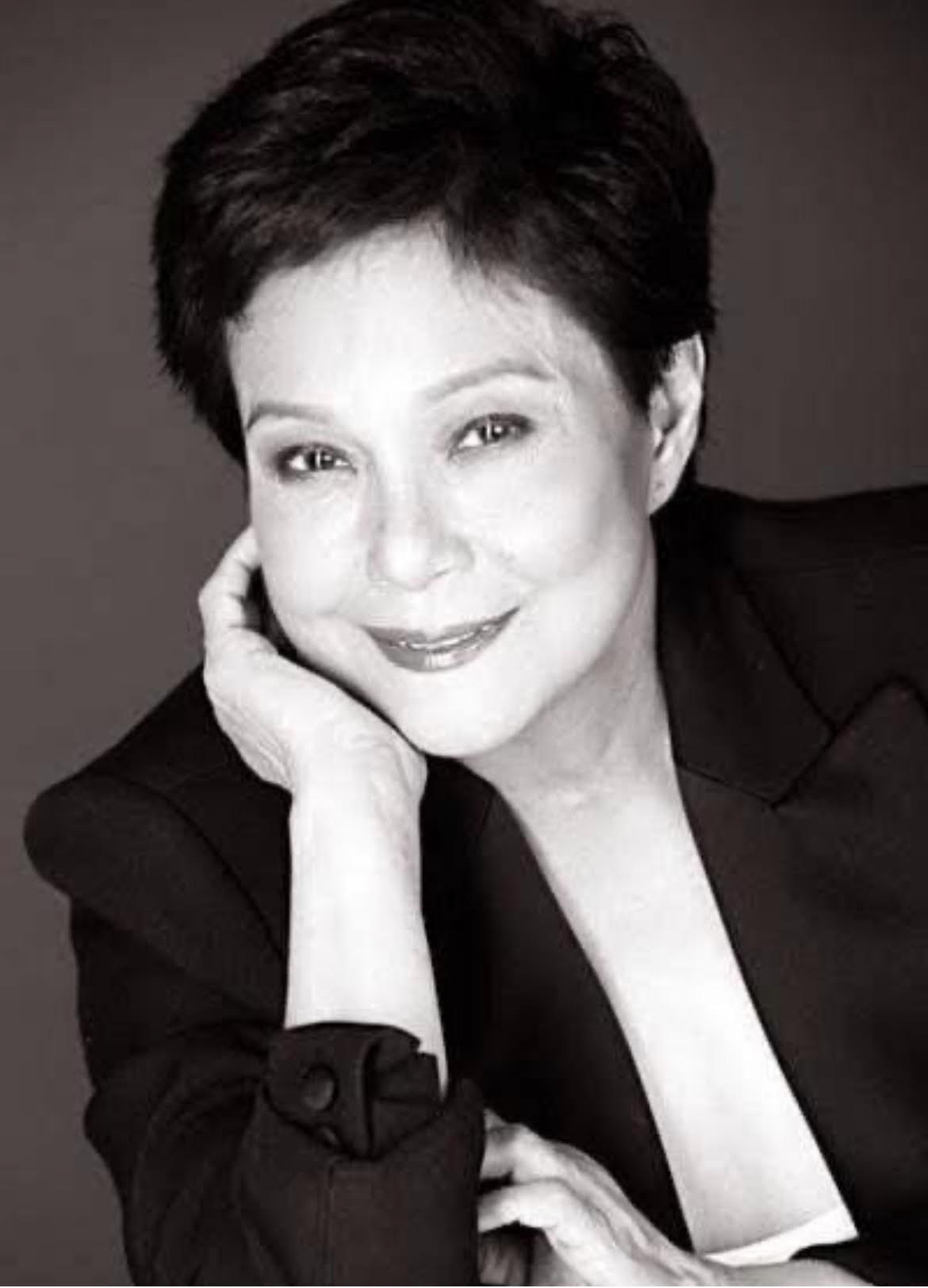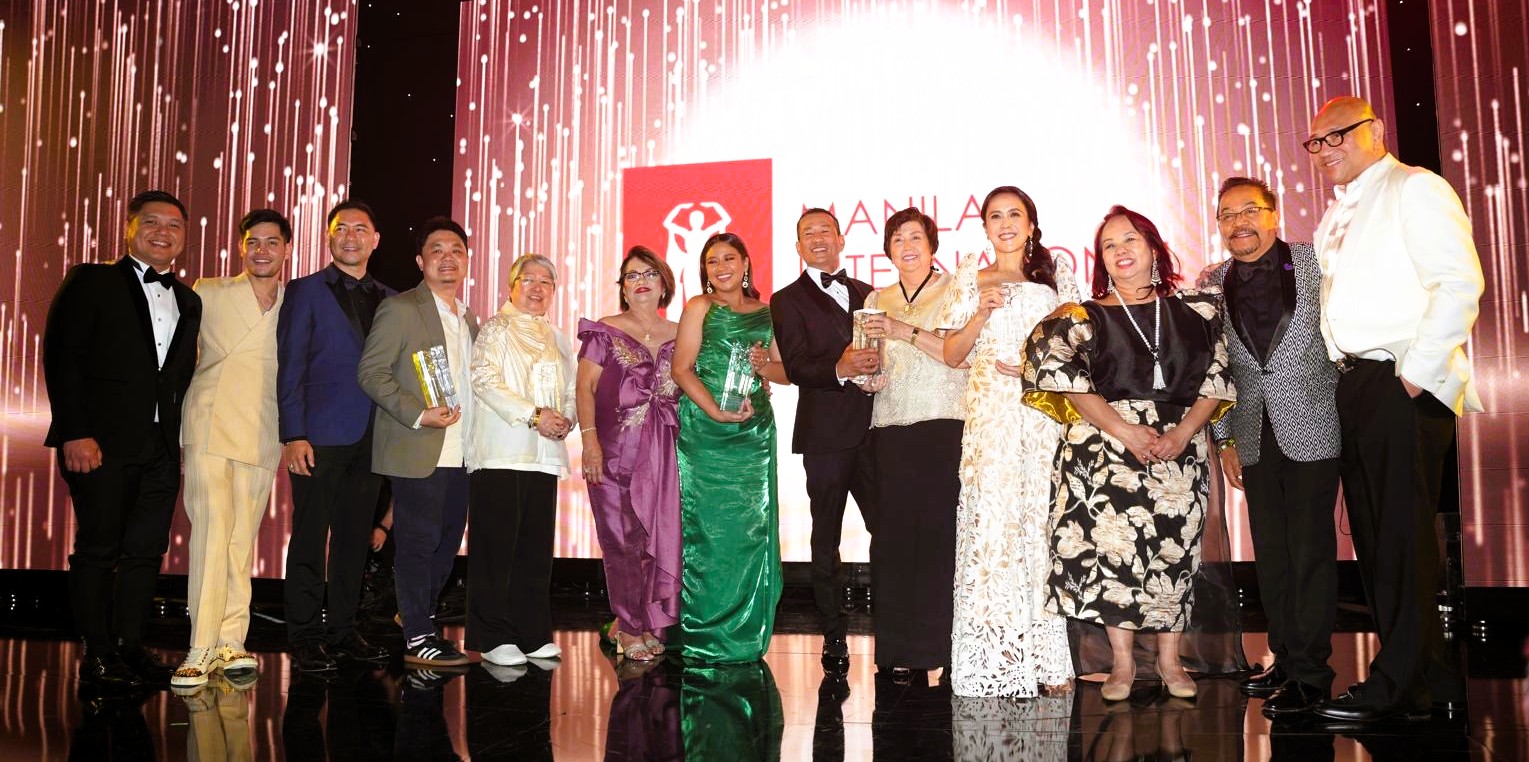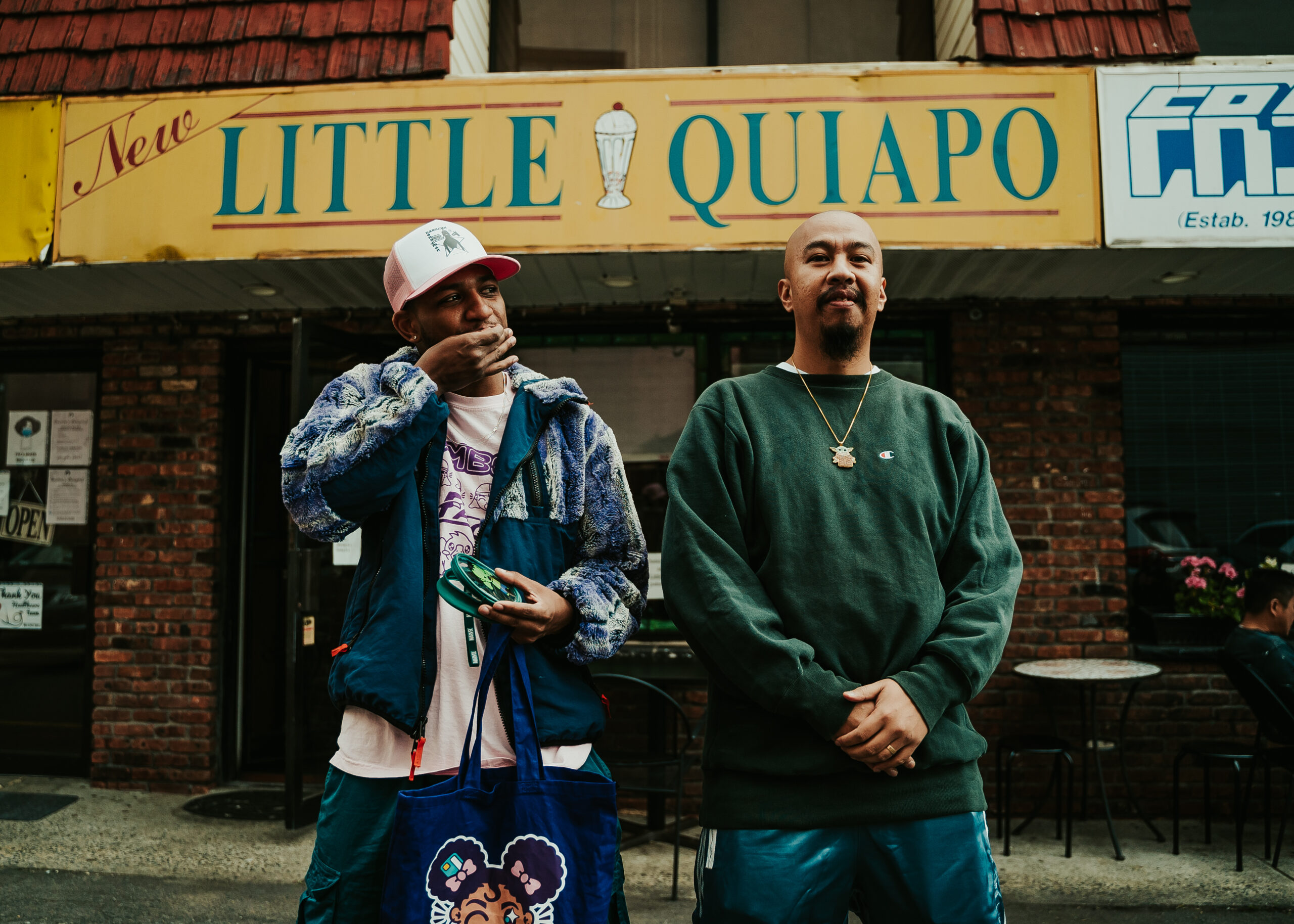
Catching up with two of the most unique voices in the hip-hop and R&B space
AMONG the album releases of 2021, none so far have taken listeners on a winding journey of self-reflection and clashes of culture more than “1176,” the latest collaboration album from Filipino Americans singer-rapper Guapdad 4000 and Grammy-winning producer !llmind.
Named after the address of the childhood home of Guapdad 4000 — whose real name is Akeem Douglas Hayes — in Oakland, California, the album was released on March 19 to high praise from fans and critics alike.
Guapdad, 28, known for his charmingly mischievous artistic persona — most evident in his 2019 debut studio album “Dior Deposits” which features buoyant ditties on scamming, luxury and hustling — takes on a more mature and introspective dive with “1176,” a 14-track exploration of his multicultural upbringing in the Bay Area.
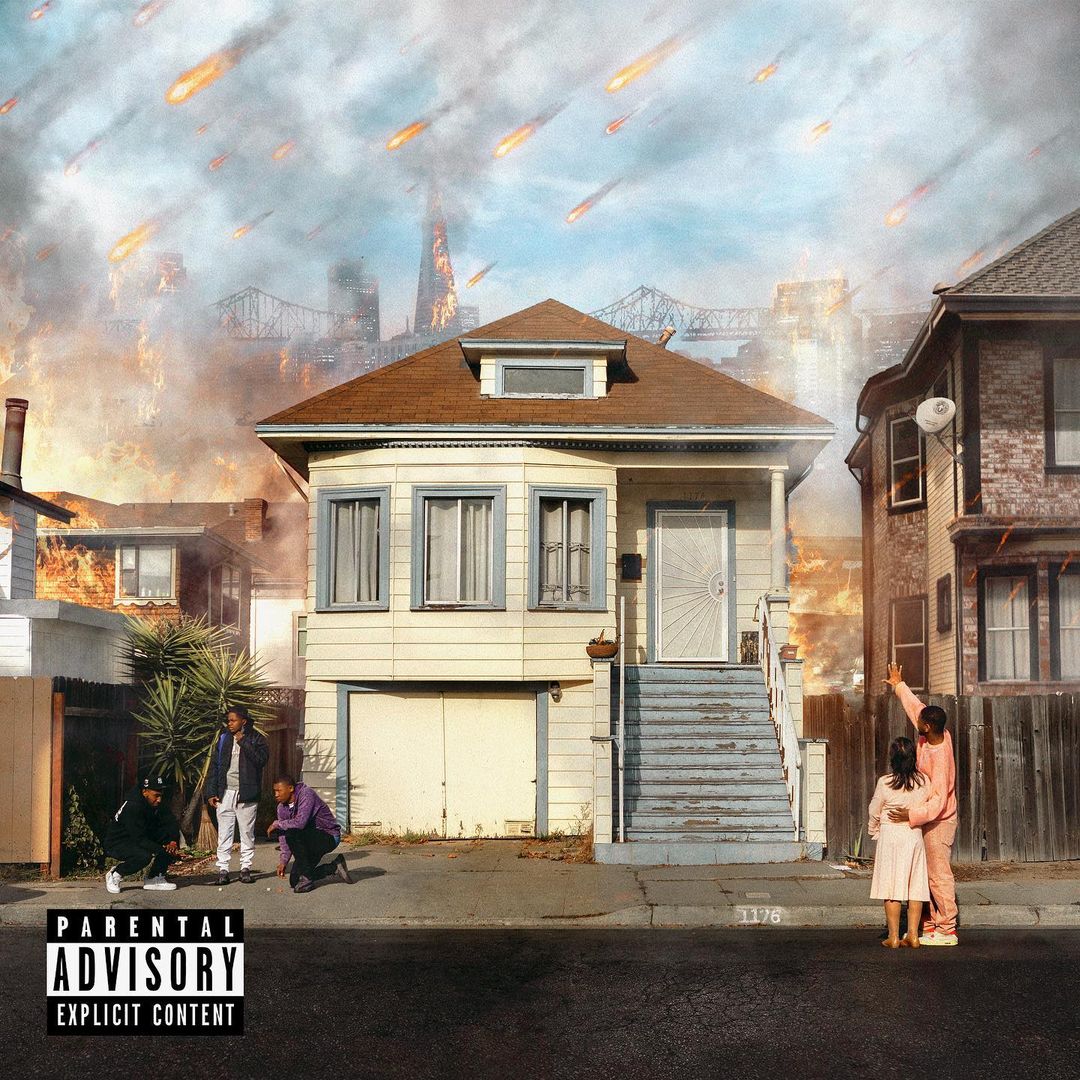
In it, Guapdad takes you on a winding car drive to his childhood, where you meet influential figures of his life growing up. He recounts specific memories that have stuck with him in his adult life in an album that so vigorously represents the duality of the biracial experience.
“It was amazing working on this album. It was a mixture of emotions: nostalgia, relatability and the human experience between me and !llmind. We just have so much in common and we were able to find us many different pockets,” Guapdad shared in a recent interview with the Asian Journal.
The beginnings in the Bay
As the son of a Filipina mother and Black father, Guapdad is acutely aware of the diversity in his own backyard, which he has celebrated in much of his work and ventures. But growing up in a diverse neighborhood and family doesn’t mean he went without the bigotry that so many mixed-race Americans experience.
“It’s a gumbo pot: mixed up out there [in the Bay Area] so I wasn’t the only mixed-race person, but people on my Black side that didn’t grow up with me or didn’t experience my family didn’t necessarily know how to relate because many people just weren’t familiar with Filipino culture,” he shared.
Guapdad also mentioned that he experienced “ignorance” from his Filipino side, too, who often made derogatory comments about his dark skin growing up.
“All forms of racism [are] just ignorance to me. There were a lot of bad experiences related to my race from both sides of my family, but the good thing about growing up in the Bay was that I got to interact with other Asian cultures in the neighborhood,” he said.
Rather than let the “ignorance” incapacitate him, Guapdad has always embraced his heritage in his professional work, making references to his Filipino and Black sides in songs and in interviews. But that enthusiasm for his cultures really comes into play in “1167,” which, among other things, celebrates the nuances of Filipino culture, namely with the album track “Chicken Adobo.”
He joked, “I still take my shoes off whenever I go into someone’s house.” But apart from the cuisine and basic quirks of his cultures, being Filipino and Black opened him up to a rich understanding of race and solidarity among people of different heritages. His Filipino side, in particular, has become more important to him as he’s gotten older.
“I like to champion all the parts about me because I love all of them and they make me who I am,” he said.

He added, “Growing up in a Filipino household impacted me a lot because, for example, I have a different kind of respect for women, especially older women like my mom and my lola who taught me to respect my elders with this sort of undying loyalty. It’s something that has carried itself throughout my life.”
A uniquely Filipino American album
As Filipino Americans continue to make a dent in popular music, “1176” serves as a point of entry for not only understanding the nuances of the Fil-Am experience, but it also demonstrates the importance and impact of vulnerability and intimacy in storytelling.
“1176” can be seen as a musical diary of a man who is working through his feelings and reflections, a contemplative collection of songs and stories of specific memories that helped form the man that Guapdad is today. As he put it, “It’s about [the] loss of innocence.”
Those stories work with the concrete, yet sparkling beats that colored !llmind’s (real name Ramon Ibanga, Jr.) production on this album, which also features other Filipino American artists; Bay Area native P-Lo features on the track “She Wanna,” one of the more sexually explicit romps that balances out the album’s dreamy reflective tone with Guapdad’s signature jest-like charm.
Just like leading co-stars in a film, the chemistry between two musical collaborators is the glue that holds the album together: if two collaborators didn’t get along in the process of making the album, that starkly shows in the finished product.
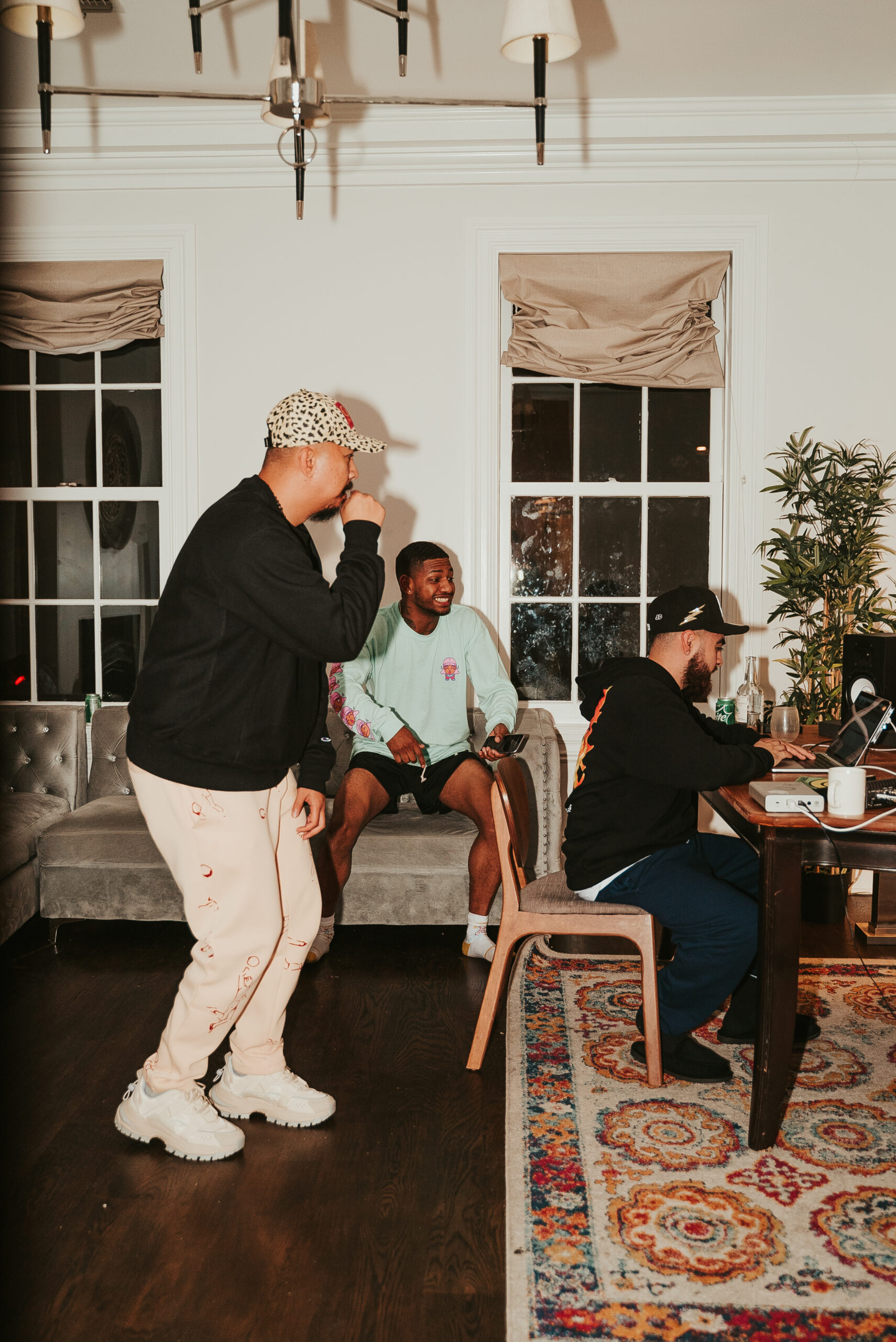
Luckily that wasn’t the case with Guapdad and !llmind. The latter has been in the music business for decades, working with a vast coterie of artists ranging from hip-hop maestros Kanye West and Jay-Z to pop queens like Beyonce and Ariana Grande. !llmind also worked with Lin-Manuel Miranda on a track for Disney’s “Moana.”
“1176” is !llmind’s seventh studio album, and though he has worked with so many different artists, he so rarely gets the chance to produce an entire album, which he said gave him limitless creativity.
“Most times, as a music producer, I usually end up only producing one or two songs on an album since most albums have a bunch of different producers,” !llmind shared. “But to be able to executive produce an entire body is like the difference between painting on a piece of paper versus painting on a 20-foot canvas.”
The collaboration began two years ago when Guapdad and !llmind, who’s based in New York, began following each other and direct messaging on social media. Shortly after, the two met in a studio in Los Angeles and a professional partnership was forged immediately; in that session, they made four songs.
“That was also the same day that we both found out that we’re both Filipino, so that definitely was a cherry on top. From then on it was a no-brainer. The chemistry and the fact that we’re Filipino made the bond even stronger and just hit it off,” !llmind shared.
View this post on Instagram
Of their learning that the other is Filipino, Guapdad noted, “It enhanced everything because we had so much more to pull from and we were able to share with each other the anecdotes about our families,” and some of those anecdotes manifested in album tracks like “Uncle Ricky.”
In total, the pair wrote and produced “close to 30 songs” in total; many of those songs didn’t make the cut for “1176,” but that only means that fans should expect more from the collaboration later on.
“He’s just become one of my go-to guys, and I love working with him. He’s very fast and he understands how to approach my beats and what to expect when I’m in the room with him. It’s always a good time so expect a lot more music from both of us in the future,” Guapdad said.
With “1176,” it’s apparent that Filipino Americans are truly making a dent in popular music. In addition to Guapdad and !llmind, figures like megastar Bruno Mars, as well as rapper Saweetie and the multitalented R&B star H.E.R., who are both also half Black and half Filipino, are among the most prominent names in the hip-hop space.
“It feels so good to know that Filipinos are breaking into the market and to the industry, that we’re planting our flag and sending a signal that’s saying, ‘We Filipinos got the juice,’” !llmind said.
“It just feels amazing, and it feels cool like I’m part of a secret club, an up-and-coming team of champions like the Avengers — the Filipino American Avengers,” Guapdad said, noting that he’d like eventually to collaborate with other Filipino American artists.


